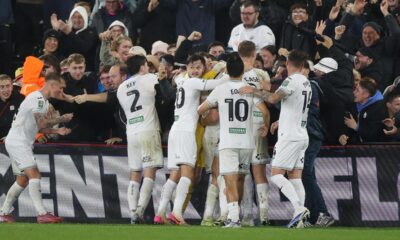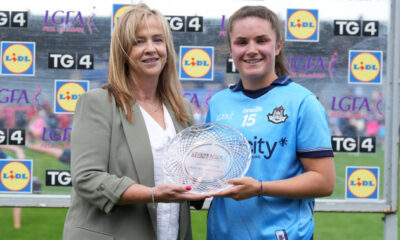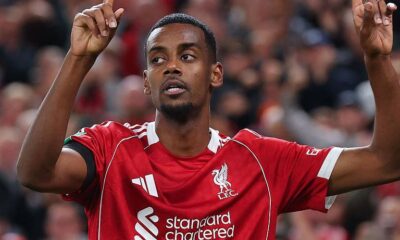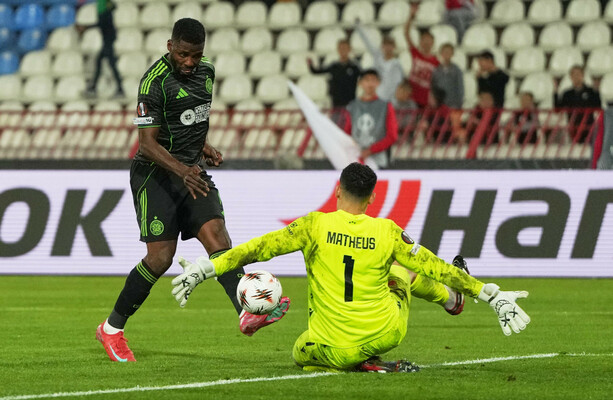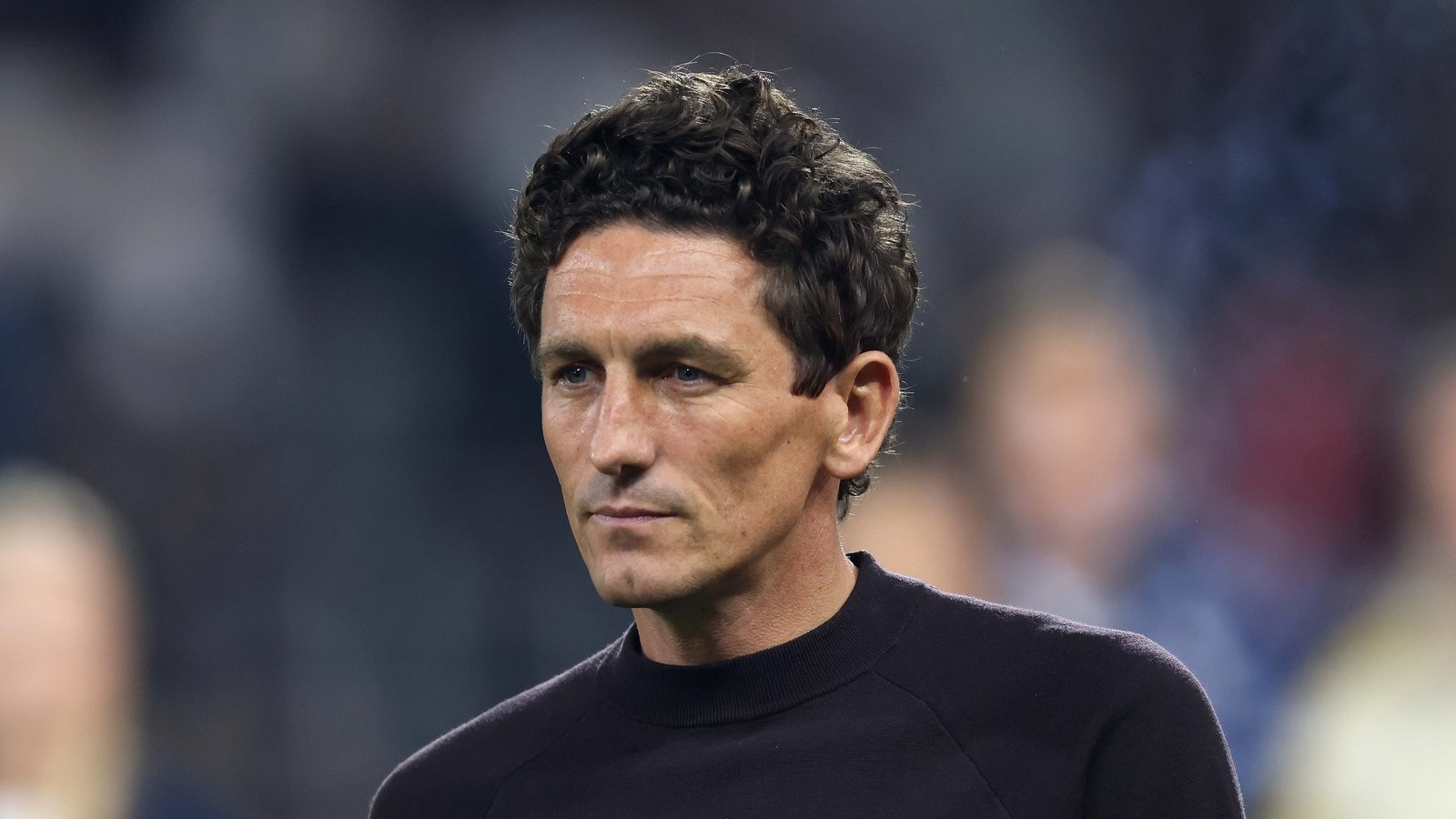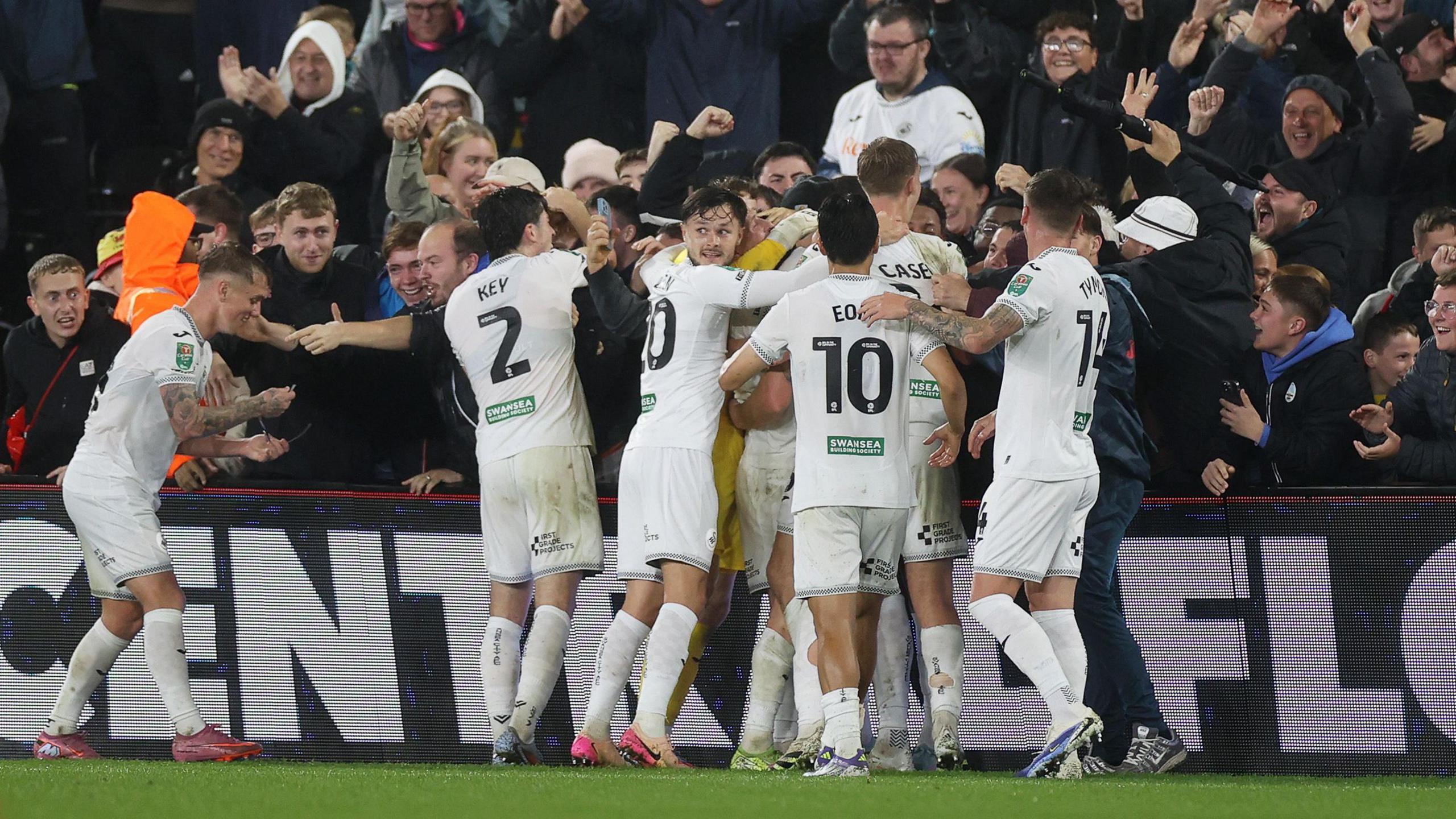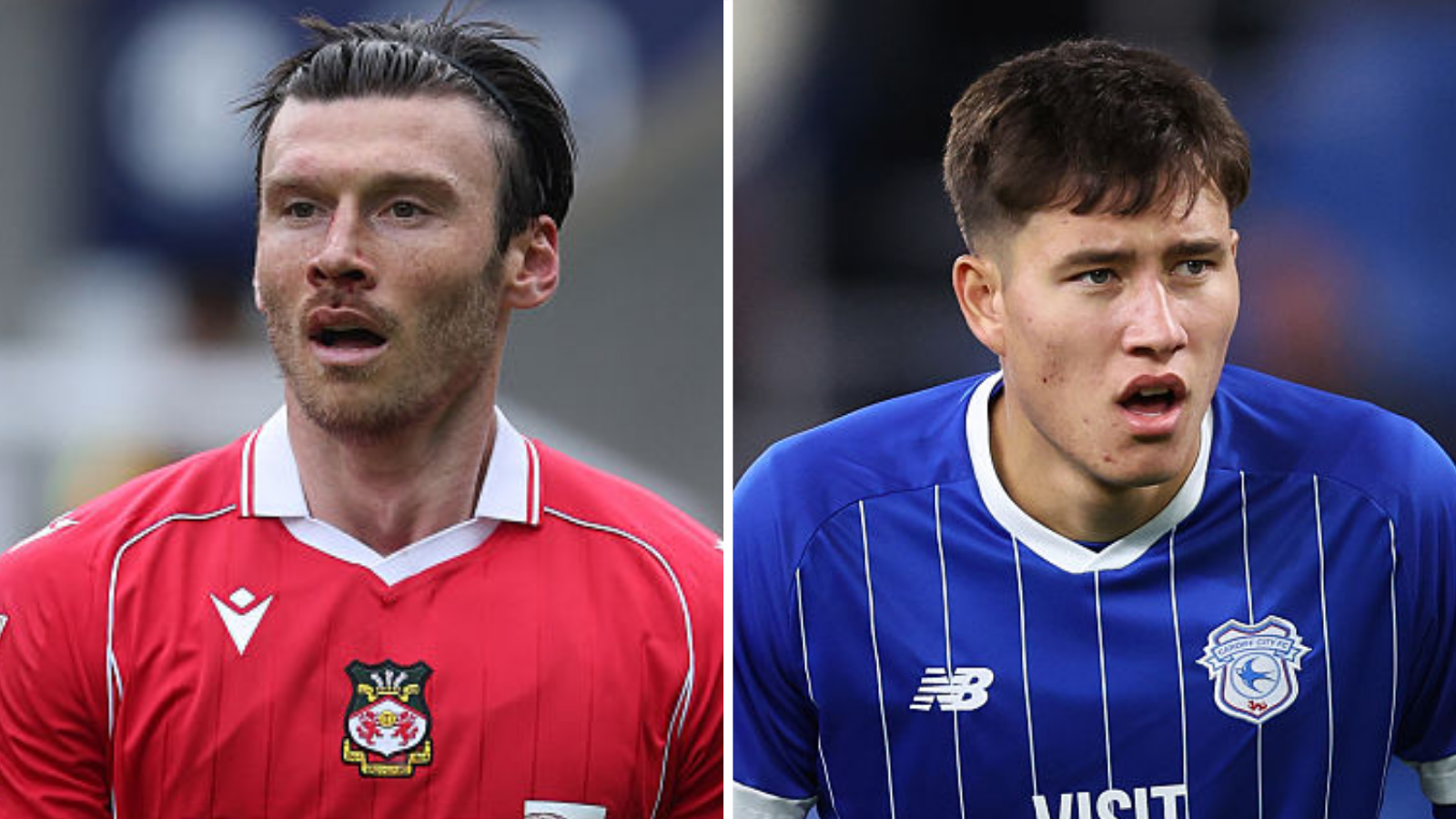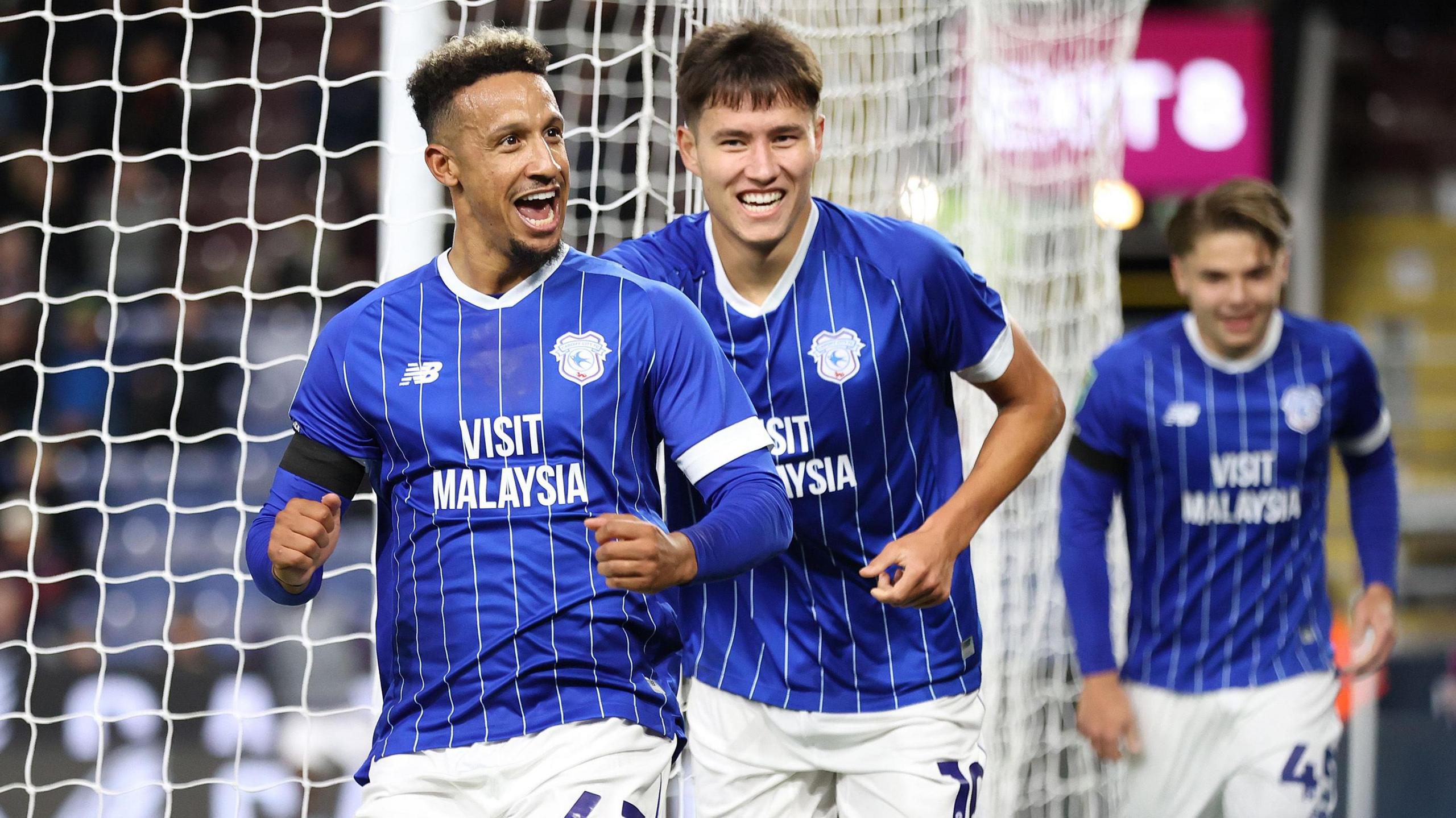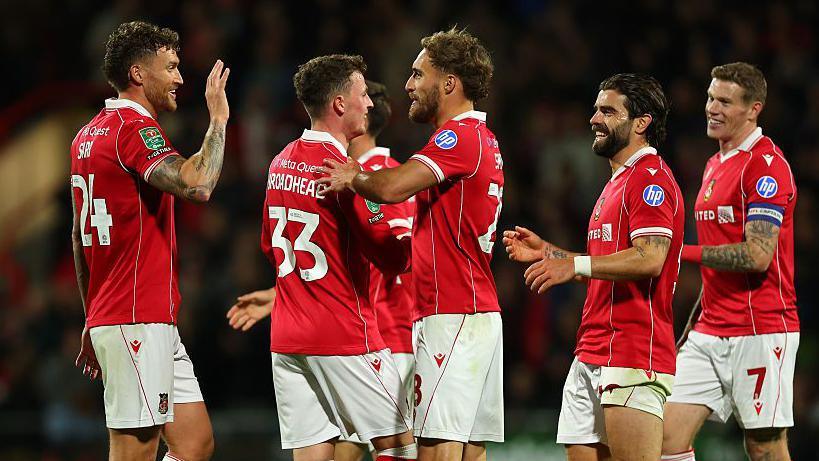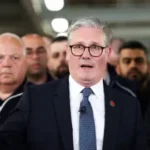CELTIC MANAGER BRENDAN Rodgers praised the impact of Kelechi Iheanacho after the half-time substitute netted in a 1-1 draw against Red Star Belgrade in the opening game of the Europa League.
The post deadline-day signing replaced Daizen Maeda at half-time after the Japan international struggled in the centre-forward role in Serbia.
Celtic had failed to make any chances from open play by half-time but they immediately improved, forcing three saves before Iheanacho took an excellent touch in the box and stroked the ball into the top corner in the 55th minute.
On the performance of Maeda, who was denied a summer move because of the club’s failure to source an adequate replacement, Rodgers told BT Sport: “He wasn’t at his best, or nowhere near it. However, he’s a good guy and sometimes that happens in the game.
“I could have made a couple of changes at half-time. I wanted to make that one certainly to give us that greater reference at the top of the pitch. I thought Kels coming in was very, very good for us.
“We needed someone centrally to hold the ball up. I felt that we arrived into the final third in the first half and then we were either loose with the ball or didn’t hold the ball up.
“It’s one of Kels’ great strengths. He can take the ball in, he can use his body well and obviously allows you to progress up the pitch. So he gave us a really much better platform in the second half.”
Celtic could not build on the opening goal and Marko Arnautovic scrambled the ball home from a corner 10 minutes later.
But they held firm from some aerial pressure and Rodgers was pleased with the point against a side who, like Celtic, also suffered a shock Champions League play-off defeat after competing in Europe’s elite competition last season.
“This is a good point for this squad of players and for us coming here,” he said.
“You come here, to a team that’s obviously won all of their domestic games, seven out of seven, coming to Belgrade is always a tough game.
“We had opportunities in the second half in particular. But we showed great resilience and showed moments of quality.
“Kels’ goal was absolutely outstanding and we had other moments in the second half.
“I still want us to be a little bit more proactive in the game. But overall, it was a nice first step for us in the competition.”
Elsewhere in the Europa League, Evan Ferguson came off the bench for the final 20 minutes as AS Roma beat Nice 2-1 in France.
Nottingham Forest’s first European match in nearly 30 years ended in a 2-2 draw as Manchester United flop Antony’s late strike extended boss Ange Postecoglou’s wait for his maiden victory in charge.
The two-time European Cup winners are back in continental competition for the first time since the 1995/96 season and kicked off the league phase with their toughest-looking assignment.
Forest showed spirit and skill in Seville, where Igor Jesus’ brace put them on course for a memorable victory as the visitors reacted impressively to Cedric Bakambu’s 15th-minute opener.
The Brazil striker turned in Morgan Gibbs-White’s low ball in the 18th minute and sparked further bedlam in the away end five minutes later when heading home a Douglas Luiz corner.
Forest should have gone further ahead before the break and then held firm amid building Betis pressure until five minutes from time, when Antony followed up his earlier assist by levelling for last season’s Conference League runners-up.
It was a late gut punch that denied Postecoglou a first victory since succeeding popular Nuno Espirito Santo, but the Australian will take heart from the opening game of a competition he won with Tottenham 18 weeks ago.




